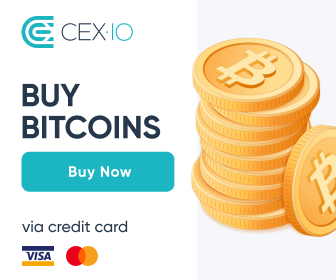Introduction to Real Estate Tokenization
Real estate tokenization, a groundbreaking concept in the investment arena, involves the conversion of real estate assets into digital tokens on a blockchain. This transformative process enables fractional ownership and increased liquidity. By fractional ownership, investors can own a portion of high-value properties, which was previously inaccessible due to high capital requirements. Increased liquidity allows for easier trading of ownership stakes, providing investors with flexibility and agility in their investment portfolio.
The potential of real estate tokenization in the investment landscape cannot be overstated. It has the capacity to revolutionize the real estate industry by democratizing access to lucrative real estate investments and creating new opportunities for a broader range of investors. The introduction of fractional ownership and increased liquidity as a result of tokenization offers investors an innovative avenue to diversify their portfolios and participate in real estate investments that were previously out of reach. This shift in accessibility and democratization of investment opportunities is reshaping traditional investment models and paving the way for a more inclusive and dynamic investment landscape.
For example, a notable instance of real estate tokenization is the successful project involving the tokenization of the St. Regis Aspen Resort. This project showcased the impact of real tokenization on investors, demonstrating the potential for fractional ownership and increased liquidity in high-value real estate assets. This example underscores the transformative power of real estate tokenization and its ability to democratize access to previously exclusive investment opportunities.
Advantages of Real Estate Tokenization
Real estate tokenization significantly enhances accessibility and diversification opportunities for investors by allowing fractionalized ownership of real property through blockchain-based digital assets. This means that investors can diversify their property investments geographically and across different types of real estate, thereby spreading their risk more effectively. Unlike traditional real estate investments that may require a substantial amount of capital, tokenization has made real estate more liquid and efficient, allowing for fractionalization and quick transactions.
Furthermore, real estate tokenization offers additional capital sources, improved investor liquidity, and resolves ownership issues for real estate owners. This means that property owners can unlock the value of their real estate assets by converting them into digital tokens, thus gaining access to additional capital and a broader pool of potential investors. Additionally, this process introduces automation, which can streamline various aspects of real estate management, such as rent collection and property maintenance, making it more efficient and cost-effective for owners and investors alike.
In comparison to traditional investment options like REITs, timeshares, and crowdfunding, real estate tokenization stands out for its ability to offer fractional ownership, increased transparency, and decentralized trading opportunities. This shift towards fractional ownership allows for smaller-scale investors to participate in real estate investments, which were previously reserved for larger institutional investors or high-net-worth individuals. This democratization of access to real estate markets is a significant advantage of real estate tokenization, as it creates a more transparent and efficient market for real estate, ultimately benefiting both investors and property owners.
An additional example of the advantages of real estate tokenization can be found in the successful tokenization project involving a 30,000-square-foot property in Manhattan. This project not only demonstrated the benefits of fractional ownership and increased liquidity but also highlighted the potential for real estate tokenization to provide investors with access to high-value properties that were previously beyond their reach. These examples underscore the transformative potential of real estate tokenization in enhancing investment opportunities and reshaping the traditional real estate landscape.
Blockchain Technology and Real Estate Tokenization
In addition to transparency, blockchain technology enables the use of smart contracts to automate various aspects of real estate tokenization. Smart contracts play a pivotal role in automating tasks like rent collection and title deed allocation, reducing the need for intermediaries and enhancing the overall efficiency of property management. This automation not only simplifies the transaction process but also minimizes the potential for human error, thereby bolstering investor confidence and trust in the real estate tokenization process. These technological advancements have revolutionized real estate investments, making them more accessible and efficient for a broader range of investors, ultimately reshaping the traditional landscape of property ownership and investment opportunities.
Furthermore, real estate tokenization has the potential to introduce greater transparency in the real estate market, enabling investors to access and verify property information more efficiently. This transparency can foster trust and confidence among investors, leading to a more open and efficient marketplace for real estate assets. By leveraging the security and transparency offered by blockchain technology, real estate tokenization provides a robust foundation for reshaping traditional real estate investment models.
Challenges and Risks in Property Tokenization
Real estate tokenization, despite its advantages, presents certain risks and challenges that investors and stakeholders should be mindful of. One of the primary concerns is the existence of security loopholes within the tokenization process. While blockchain technology provides transparency and trust, it is not immune to security vulnerabilities, which could potentially compromise the integrity of property tokenization platforms and transactions. For instance, smart contract security loopholes have been identified as a significant risk, as these contracts are integral to the execution of real estate tokenization processes.
Furthermore, the regulatory frameworks surrounding real estate tokenization can be complex and may vary across different jurisdictions. Navigating these regulations and ensuring compliance with legal requirements are critical aspects of engaging in real estate tokenization. Additionally, tax complexities related to tokenized real estate investments need to be carefully addressed, as they can have financial implications for investors and property owners.
To address these challenges effectively, it is crucial to adopt centralized reporting mechanisms that can enhance transparency and accountability within the property tokenization ecosystem. Moreover, seeking guidance from experienced professionals and legal advisors who specialize in real estate tokenization can provide valuable insights and strategies for mitigating risks and ensuring compliance with regulatory frameworks. By acknowledging and addressing these challenges, stakeholders can work towards establishing a more robust and secure environment for real estate tokenization.
Additionally, the potential for exploitation of smart contracts and regulatory compliance issues highlight the importance of due diligence and risk management in real estate tokenization. It is essential for investors and stakeholders to conduct thorough assessments of tokenization platforms, legal considerations, and security measures to mitigate these risks effectively. By proactively addressing these challenges, the real estate tokenization ecosystem can advance towards greater stability and resilience, fostering trust and confidence among investors and market participants.
Real-world Examples of Real Estate Tokenization
Real estate tokenization has brought about transformative changes in the investment landscape, as seen in successful projects like the St. Regis Aspen Resort and a 30,000-square-foot property in Manhattan. These projects serve as compelling examples of the impact of property tokenization on investors, showcasing the potential for fractional ownership and increased liquidity in high-value real estate assets.
The St. Regis Aspen Resort, for instance, was tokenized to make ownership more accessible to a wider pool of investors, allowing them to participate in the luxury real estate market without the need for significant capital outlay. This fractional ownership model not only revolutionized investment opportunities but also contributed to increased liquidity in the real estate market, enabling investors to trade their digital tokens without the traditional limitations of the property market. Similarly, the tokenization of the 30,000-square-foot property in Manhattan exemplifies how real estate tokenization has democratized access to high-value real estate assets, providing fractional ownership opportunities and enhanced liquidity for investors looking to diversify their portfolios. These examples underscore the potential of real estate tokenization to revolutionize the industry and create new investment avenues for individuals and companies alike.
Furthermore, the success of these real-world examples highlights the growing acceptance and adoption of real estate tokenization as a viable investment option. As more high-value properties are tokenized and made accessible to a broader investor base, the real estate market is likely to witness a significant shift in investment patterns and opportunities. These examples serve as compelling evidence of the transformative potential of real estate tokenization in reshaping traditional investment models and providing investors with innovative avenues for wealth creation and portfolio diversification.
The Future of Real Estate Tokenization
Looking ahead, the future of real estate tokenization appears promising, with numerous potential benefits for investors and the real estate industry as a whole. One significant aspect of this future is the expected increase in demand from investors. As real estate tokenization continues to gain traction, more investors are likely to recognize the advantages it offers, such as fractional ownership and increased liquidity, which can potentially lead to a surge in demand for tokenized real estate assets.
Furthermore, real estate tokenization presents opportunities for easier diversification, allowing investors to spread their capital across various properties and locations. This diversification potential could mitigate risk and optimize returns for investors, making it an attractive prospect for those seeking a balanced real estate investment portfolio. Additionally, the advent of real estate tokenization could have social implications, fostering stronger community bonds and potentially granting individuals literal ownership of the community they invest in.
Moreover, the future of real estate tokenization holds the promise of global accessibility to markets, providing opportunities for investors to participate in real estate ventures across different geographical locations and jurisdictions. This global accessibility can open up new avenues for investment and wealth creation, transcending traditional barriers to entry. Furthermore, the ease of entry for small-budget investors is a crucial aspect of the future of real estate tokenization, as it can democratize access to real estate investments and empower a more diverse range of individuals to participate in this asset class.
In light of these promising prospects, exploring real estate tokenization as an investment option could provide investors with new and innovative opportunities for wealth creation and portfolio diversification. For more insights and information on real estate tokenization and other cryptocurrency investments, visit the Bitnews NZ website at Bitnews NZ.
Security Considerations in Real Estate Tokenization
Security is a critical aspect of real estate tokenization. It is essential to ensure that real estate tokens are secure and protected from potential vulnerabilities. One key consideration for maintaining the security of real estate tokens is the use of reputable and secure platforms. By choosing trusted platforms with a proven track record of security, investors can mitigate the risk of unauthorized access and fraudulent activities.
In addition to platform selection, implementing best practices for digital asset security is crucial. This includes employing robust encryption measures, multi-factor authentication, and regular security audits to identify and address any potential weaknesses in the tokenization process. By adhering to these best practices, investors can enhance the overall security posture of their real estate tokens, safeguarding them against cyber threats and unauthorized exploitation.
Furthermore, when listing tokens on compatible platforms for digital transfers, prioritizing privacy controls is imperative. By configuring privacy settings and access controls, investors can restrict the visibility of sensitive information associated with the real estate tokens, thereby reducing the likelihood of unauthorized disclosure or misuse. This layered approach to security considerations underscores the commitment to protecting the integrity and confidentiality of real estate tokens in the tokenization ecosystem.
In the context of real estate tokenization, privacy controls and data security play a pivotal role in safeguarding investors’ interests and ensuring the integrity of property token transactions. As the adoption of real estate tokenization continues to grow, the implementation of robust security measures will be essential in fostering trust and confidence among investors and stakeholders. By prioritizing security considerations and embracing best practices, the real estate tokenization ecosystem can evolve into a secure and resilient investment platform, offering investors a reliable avenue for participating in the real estate market.
Differentiating Tokenization from Traditional Investments
Real estate tokenization stands out in comparison to traditional real estate investment due to its emphasis on fractional ownership, global market access, and digital trading opportunities. Unlike traditional real estate investment, which typically involves purchasing physical properties, real estate tokenization enables investors to own fractions of high-value properties, making it more accessible to a broader investor base. This fractional ownership model allows small-scale investors to participate in real estate markets that were previously out of reach.
Furthermore, real estate tokenization facilitates global access to markets, enabling investors to diversify their portfolios across different geographical locations and types of real estate assets. This contrasts with traditional investments, which often limit investors to properties within their local or regional markets. Additionally, real estate tokenization leverages blockchain technology to enable digital trading of property tokens, offering a level of liquidity and efficiency not typically found in traditional real estate investments. This increased liquidity allows investors to buy and sell property tokens more swiftly and with reduced barriers to entry, thereby enhancing market efficiency and accessibility.
For instance, the successful tokenization of the St. Regis Aspen Resort and a 30,000-square-foot property in Manhattan exemplifies how real estate tokenization has revolutionized investment opportunities and broadened market accessibility. These examples underscore the transformative potential of real estate tokenization in reshaping traditional investment models and providing investors with innovative avenues for wealth creation and portfolio diversification. By enabling fractional ownership, global market access, and digital trading, real estate tokenization is redefining the investment landscape and unlocking new opportunities for investors of all scales.
The Role of Smart Contracts in Real Estate Tokenization
Smart contracts are a fundamental component of property tokenization, revolutionizing the way property management and transaction processes are conducted. These self-executing contracts are encoded with predefined rules and automated actions, ensuring that the terms of the agreement are met without the need for intermediaries. For example, when a real estate token holder receives rental income from a property, the smart contract can automatically distribute the funds to the respective token owners based on their holdings. This level of automation not only expedites the payment process but also enhances transparency and reduces the potential for disputes, making real estate investment more attractive to a broader investor base.
Furthermore, smart contracts also facilitate the allocation of ownership rights and the execution of property transfers in real estate tokenization. By leveraging blockchain technology, these contracts ensure that the transfer of digital tokens representing real estate assets is conducted securely and transparently, mitigating the risk of fraud and unauthorized alterations to ownership records. This capability is particularly significant in real estate transactions, where the transfer of property titles and deeds traditionally involves complex legal procedures and documentation. Through the implementation of smart contracts, real estate tokenization offers a seamless and secure method for investors to participate in property ownership with reduced administrative burdens and enhanced trust in the transaction process.
The integration of smart contracts in real estate tokenization not only automates essential processes but also fosters trust, transparency, and efficiency in real estate investments, ultimately reshaping the landscape of property ownership and transactions. By providing a secure and transparent framework for property management and transactions, smart contracts play a pivotal role in the evolution of real estate tokenization, offering investors a reliable and efficient avenue for participating in the real estate market.
In conclusion, real estate tokenization provides a transformative approach to real estate investments, offering fractional ownership, global market access, and digital trading opportunities that distinguish it from traditional investment models. By leveraging blockchain technology and smart contracts, real estate tokenization is revolutionizing the investment landscape, providing a secure, transparent, and efficient platform for investors to diversify their portfolios and participate in high-value real estate assets. For more insights and information on cryptocurrency investments, visit Bitnews NZ’s website at Bitnews NZ.







